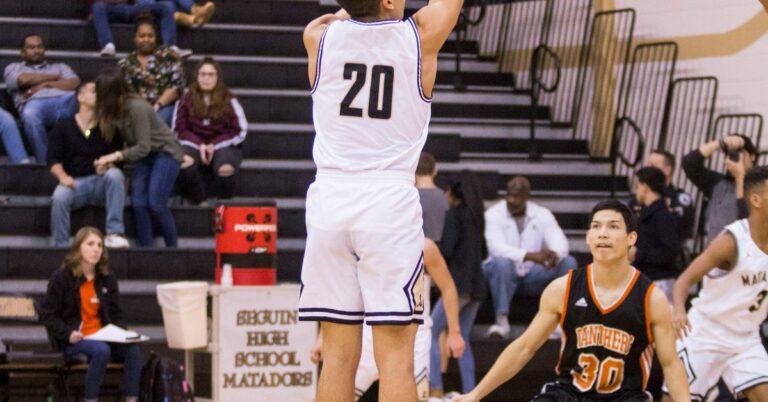Introduction: The Power of Play
In an age where individualism often reigns supreme, the resurgence of team sports offers a refreshing reminder of the strength found in unity. It’s not just about scoring points or winning trophies; it’s about building connections, fostering community, and unlocking the full potential of individuals through collective effort. I often think back to my own childhood—those long summer days spent playing pickup games in the park, where the stakes were low but the camaraderie was sky-high. Each match was a lesson in teamwork, resilience, and sometimes, humility.
The Psychology of Team Sports
Engaging in team sports is not merely a physical endeavor; it’s a psychological journey that shapes character and builds social skills. Research suggests that participating in team activities can lead to enhanced self-esteem, improved emotional regulation, and even greater academic performance. According to a study from the American Psychological Association, individuals who are part of a team often report higher levels of happiness and lower levels of anxiety.
Building Resilience
Consider the story of Mia, a high school soccer player. After suffering a devastating injury, she faced not only physical challenges but emotional hurdles as well. “I thought my season was over,” she recalled, “but my teammates rallied around me. They made me feel like I was still part of the team, even when I couldn’t play.” This sense of belonging can often be more valuable than any physical trophy.
Fostering Leadership Skills
Team sports also provide a fertile ground for developing leadership qualities. In a team, players learn to communicate effectively, strategize, and motivate others. Take Sam, for example, who started as a shy benchwarmer on his basketball team. Over the years, he evolved into a confident captain, guiding his teammates both on and off the court. His experience is a testament to how sports can cultivate leaders who are able to inspire and uplift those around them.
Community Connection: More Than Just a Game
Team sports have the unique ability to bridge gaps—whether they be social, economic, or cultural. They create a sense of belonging that transcends individual differences. I remember attending a local baseball game where families from all walks of life gathered, united by a common love for the game. It struck me then how sports can serve as a melting pot, drawing together people who might never cross paths otherwise.
Local Heroes and Role Models
In many communities, sports figures become local heroes. They inspire the next generation to dream big. For instance, the story of a former professional player returning to coach a youth team can ignite passion and enthusiasm in young athletes. These role models don’t just teach skills; they share life lessons—determination, discipline, and the importance of hard work.
Creating Lasting Relationships
Participating in team sports fosters friendships that can last a lifetime. Think back to those awkward middle school days—teams were often the foundation for social circles. I still laugh when I think about the time I, in my infinite wisdom, decided to introduce a ‘new strategy’ during a game, which resulted in the ball hitting my teammate squarely in the face. (In my defense, he should have been paying more attention!) Yet, those moments—both triumphant and embarrassing—forge bonds that hold true long after the final whistle.
Breaking Down Barriers: Inclusivity in Sports
Inclusivity in sports is a topic gaining traction in recent years. Organizations are increasingly recognizing the need to provide opportunities for all individuals, regardless of ability, background, or demographic. Programs that integrate athletes with disabilities into traditional sports teams not only enrich the experience for all involved but also promote understanding and compassion among teammates.
Unified Teams: A Model for Society
Unified sports programs exemplify this ideal beautifully. By pairing athletes with and without intellectual disabilities, these teams create a unique environment where everyone contributes to the common goal. “It’s not just about winning,” one coach explained. “It’s about learning from each other and growing together.” It’s a philosophy that could serve as a model for society at large, teaching us that our differences are what make us stronger.
The Role of Coaches and Mentors
Coaches and mentors play a pivotal role in harnessing the potential of team sports. They are often more than just strategists; they are educators, confidants, and sometimes, even parental figures. I’ve met coaches who have dedicated their lives to shaping young athletes, instilling values that extend far beyond the playing field. Their influence can be profound, as evidenced by countless testimonials from former players.
Developing Character
One seasoned coach, Mr. Thompson, shared his philosophy with me during a casual interview. “In my book, it’s not just about the game,” he said while leaning back in his chair, “it’s about character development. Winning is great, but teaching my players to handle loss with grace is even better.” His approach emphasizes that team sports are a microcosm of life itself, where lessons learned on the field can translate to real-world success.
Mentorship Beyond Sports
Many athletes find that the mentorship they receive extends well beyond their playing days. Former players often return to contribute to their communities, sharing their experiences and encouraging youth to pursue their passions. It’s a cyclical process of giving back that enriches not just the mentors but also the communities they serve.
Building Healthier Communities Through Engagement
Participation in team sports also has a direct correlation with community health. Local leagues and recreational programs not only promote physical fitness but also serve as a catalyst for community engagement. When families come together to support their teams, a sense of pride and ownership develops within the community.
The Ripple Effect
The ripple effect of engaged communities can be staggering. Research indicates that communities with high levels of sports participation experience lower crime rates, improved mental health, and enhanced overall well-being. It’s fascinating to think that something as simple as playing a game can foster a sense of belonging and safety. Who knew a soccer ball could have such social impact?
Creating Opportunities for Everyone
Moreover, local governments and organizations are beginning to recognize the importance of supporting recreational sports programs. Initiatives aimed at reducing fees for underprivileged children or providing transportation to games can make a world of difference. It’s all about leveling the playing field—literally and figuratively.
Success Stories: Transformative Experiences
There’s no shortage of inspiring tales that highlight the transformative power of team sports. For many individuals, these experiences have led to profound changes in their lives. One such story is that of Marcus, a young man who faced significant challenges growing up in a disadvantaged neighborhood. His life took a turn when he joined a community basketball team.
A Catalyst for Change
“Basketball saved my life,” Marcus told me during an interview, his eyes shining with conviction. “It gave me a purpose and a support system. Through the team, I learned discipline and hard work. I went from being a kid who struggled in school to earning a scholarship.” His story is a powerful reminder of how access to team sports can alter the trajectory of lives.
Creating Role Models
Stories like Marcus’ are not isolated. They resonate throughout communities, creating a ripple effect of inspiration. Hearing about a local athlete making it big can ignite hope in young aspiring players. They see themselves reflected in those role models, understanding that success is attainable with hard work and dedication.
Overcoming Challenges: The Future of Team Sports
Despite the numerous benefits, team sports face challenges today, especially in the wake of the COVID-19 pandemic. Many leagues struggled to survive as public health protocols forced them to cancel seasons and limit participation. However, this also presented an opportunity for innovation and adaptability.
Embracing Technology
Many teams have turned to technology—utilizing virtual training sessions, online strategy meetings, and social media to maintain connections. Coaches and athletes found creative ways to engage and motivate each other, proving that the spirit of the game can thrive even in difficult circumstances. I chuckled when I heard about a team that hosted a virtual talent show—who knew my old teammate could juggle while reciting the entire alphabet backward? (Not that I’m volunteering to try!)
Looking Ahead
As we look to the future, it’s crucial to prioritize inclusivity and accessibility in team sports. Communities must work together to ensure that everyone has the chance to participate and experience the benefits of team dynamics. This involves not only addressing financial barriers but also fostering an environment where diversity is celebrated, and every voice is heard.
Conclusion: The Enduring Legacy of Team Sports
Ultimately, the role of team sports in our lives goes far beyond the game itself. They offer a unique platform for personal growth, community connection, and the development of essential life skills. Through shared experiences, individuals can unleash their potential, discovering strengths they never knew they had.
As I reflect on my own experiences, I’m reminded of the profound impact that team sports have had on my life—and I suspect many readers would agree. So, whether you’re a seasoned athlete or someone who prefers to cheer from the sidelines, remember: the spirit of teamwork is alive and well, ready to unlock potential and forge connections in ways we may never fully comprehend. And who knows? Maybe it’s time to grab that old baseball glove or basketball and join the fun. After all, the game is just waiting for you.













